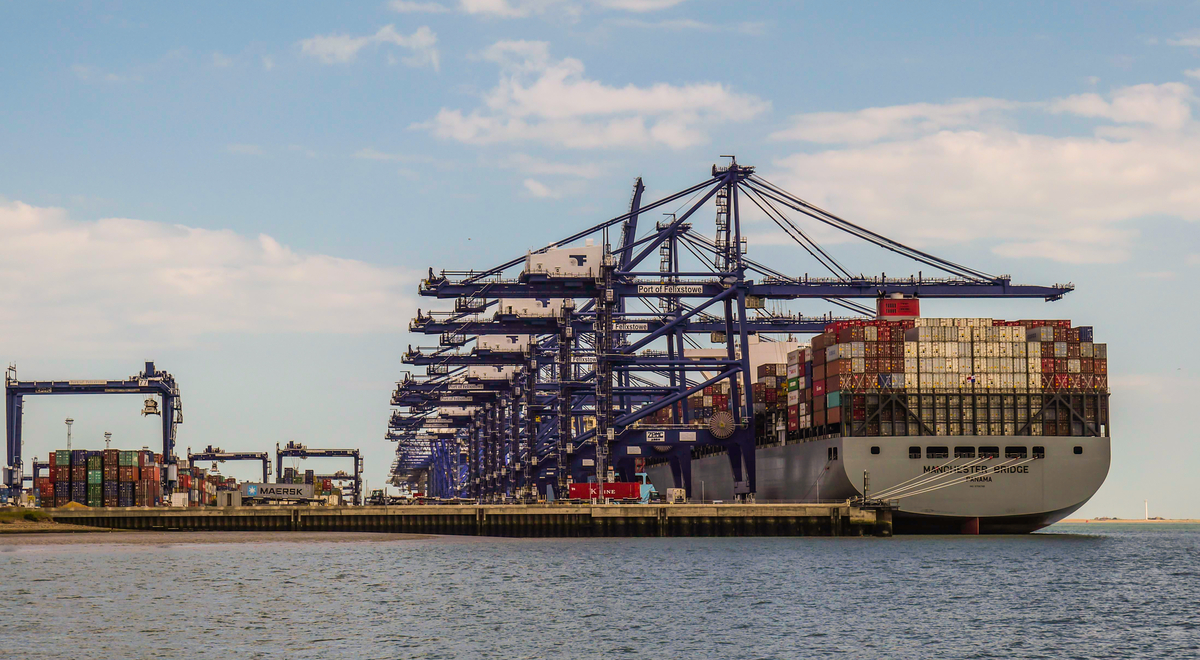The lack of truck drivers combined with growing demand for goods around the world has led to the UK’s largest cargo port in Felixstowe being blocked.
According to 2020, about a third of the containers imported into the UK by sea are shipped to the port of Felixstowe in the east of England. According to port authorities on Wednesday, 50,000 containers await collection. “It is not the port of Felixstowe that is blocking supply chains, but the supply chains are blocking the port of Felixstowe,” the authorities said, adding that the situation was “similar in all major British ports”.
In Felixstowe, the average time between unloading containers from a ship and receiving them by truck has increased to 10 days, although usually 3-5 days, and large vessels have to wait up to seven days to enter port and unload containers.
For this reason, the Danish company Maersk, the world’s largest container operator, announced that it is redirecting one vessel with a capacity of 80,000 tons per week from Felixstowe to other European ports, mainly to Rotterdam in the Netherlands, where it is unloaded and then smaller vessels deliver. containers to other smaller British ports. However, Mayersk pointed out that the problem concerns not only Great Britain, but also pointed out that Felixstowe is one of the two or three ports where it is currently the most serious. In the UK, geography is an additional constraint, as more than 90 per cent of all imported goods are shipped by sea.
However, redirecting ships to other ports is a temporary solution. It is estimated that there is a shortage of around 100,000 truckers in the UK.
There were several reasons for this, primarily the pandemic and Brexit. The British government, trying to contain the crisis, announced less than two weeks ago that it would issue visas for several months to 5,000 foreign truck drivers. But so far the plan to overcome the crisis is not quite so. Conservative leader Oliver Dowd told Sky News on Wednesday that foreign drivers had so far applied for 300 visas, of which only 20 were satisfied, but assured that the situation in ports was improving and the British would be able to buy Christmas presents as usual.
However, representatives of the freight forwarding industry advise to plan Christmas purchases in advance.

